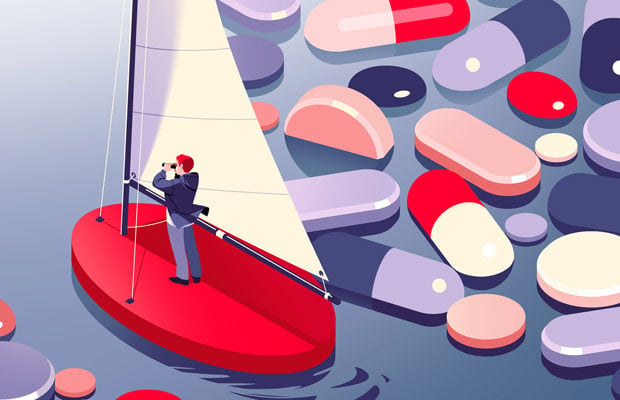But do they really work as well as widely prescribed statins? We look at whether the evidence stacks up for seven of the most common ones you’ll come across.
1. Plant sterols and stanols
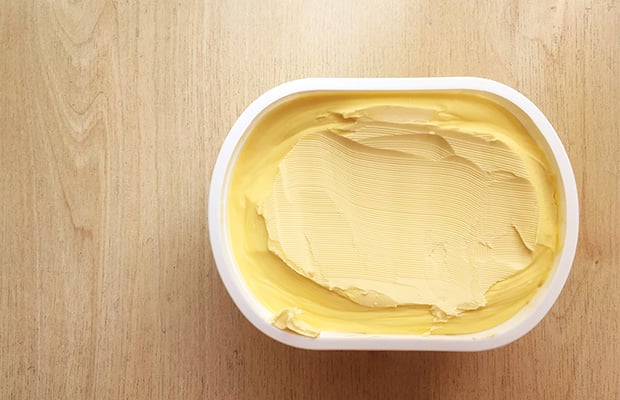
You’ve probably seen margarines, milks and yoghurts that say they actively lower cholesterol.
These contain added plant sterols and stanols – also known as phytosterols – which have been shown to lower cholesterol.
One review of 124 studies published in 2014 in the British Journal of Nutrition found that up to 3.3 grams of phytosterols a day gradually lowered ‘bad’ low-density lipoprotein (LDL) cholesterol by 6 to 12 per cent after around four weeks.
It’s thought that, because plant sterols and stanols have a similar structure to cholesterol, they reduce the amount of cholesterol absorbed by the gut, which lowers your cholesterol blood levels.
You can also find small amounts in plant-based foods like fruit, vegetables, vegetable oils, nuts and grains. However, this usually add up to less than 600mg of phytosterols a day, which is much lower than the effective dose of 2g you can get from fortified dairy products.
And while plant sterols and stanols may lower your cholesterol, there have been no clinical trials that show they lower the risk of heart attack and stroke.
In contrast, statins have been shown to reduce both your cholesterol levels and your risk of having a heart attack and stroke.
2. Oats

Oats and barley contain a type of soluble fibre (which means it can dissolve in water), called beta-glucan. Soluble fibres form a gel in your gut, which can bind with cholesterol and stop it from being absorbed into the body.
Research suggests that beta glucans can help lower your cholesterol by a modest amount if you include them as part of a healthy diet.
A review of 58 controlled trials also published in the British Journal of Nutrition found that middle-aged people’s ‘bad’ cholesterol decreased by 4.2 per cent when they consumed 3.5g of beta-glucan from oat products a day over three to 12 weeks compared to those who did not.
A 40g serving of porridge oats contains 2g of beta-glucan, while a 250ml glass of oat milk contains 1g of beta glucans.
However, there is no research linking oats to a lower risk of heart attack or stroke.
3. Garlic
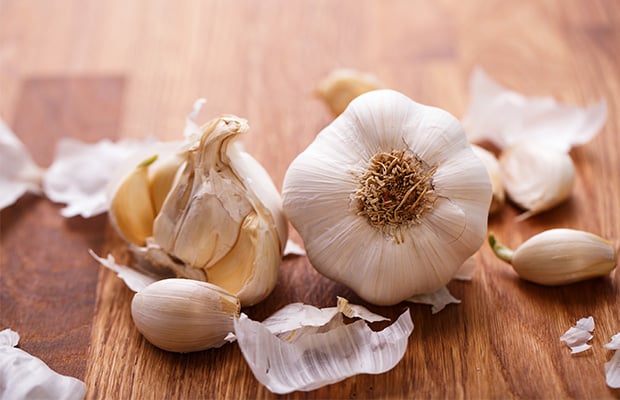
There have been claims that a chemical in garlic called allicin can lower cholesterol and blood pressure, but research has been mixed.
One small study in Iran published in 2016 in the International Journal of Preventive Medicine found that people with high cholesterol who had 20g of raw garlic (around four cloves) and one tablespoon of lemon juice a day for eight weeks experienced a larger decrease in their ‘bad’ cholesterol levels than those who took just one or neither ingredient.
But a Stanford University trial published in the Archives in Internal Medicine in 2007 found that taking raw garlic, or garlic supplements, almost daily for six months had no effect on ‘bad’ cholesterol levels in people with high cholesterol.
4. Omega-3s
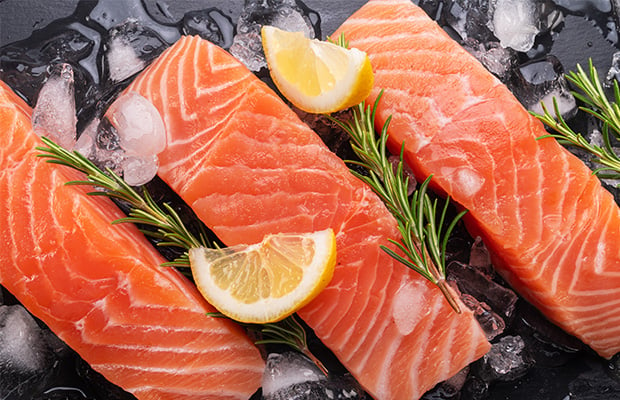
While omega-3 fatty acids, typically found in oily fish and fish oil supplements, do not lower cholesterol, they are thought to reduce another type of fat in your blood known as triglyceride, which can also increase your risk of heart and circulatory diseases if their levels are too high.
An analysis of 90 studies with 72,598 participants published in 2023 in the Journal of the American Heart Association found that consuming supplements containing two types of omega-3s a day for around 13 weeks led blood triglyceride levels to fall.
This reduction was seen in people with high cholesterol and those without.
The research looked at the effects of supplements containing 2g of docosahexaenoic acid (DHA) and eicosapentaenoic acid (EPA) omega-3s.
However, it also found that while taking over 2g of these omega-3 supplements a day decreased triglyceride levels further, it also increased levels of ‘bad’ cholesterol.
Both DHA and EPA omega-3s are found naturally in oily fish, like salmon, mackerel and anchovies, and another type of omega-3 called alpha-linolenic acid (ALA) is in some nuts and seeds and the oils made from them.
But omega-3 supplements are not recommended to prevent heart disease, unless your GP prescribes them for high triglyceride levels, as the evidence behind taking them to improve your heart health is mixed.
For example, research published in the journal BMJ Medicine in 2024 showed that fish oil supplements may increase the risk of someone developing a heart condition or having a stroke, but could reduce the risk for those who already have heart disease.
5. Red yeast rice extract (RYRE)
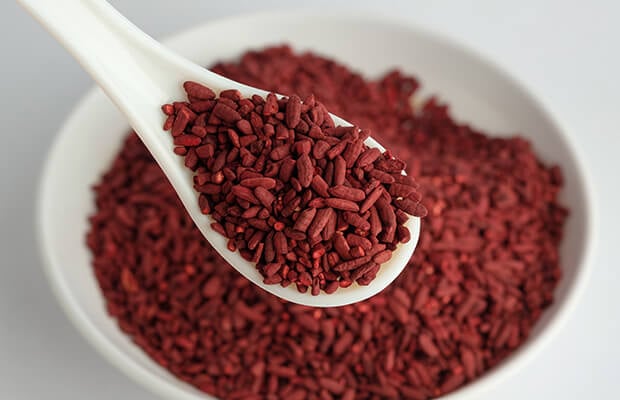
Red yeast rice extract (RYRE) comes from fermentation of a type of yeast found in rice and is sold as a supplement.
It contains an ingredient called monacolin K, which may lower ‘bad’ LDL cholesterol and is already an ingredient in a statin called lovastatin.
A 2015 review of 20 trials published in the journal Atherosclerosis found that those taking red yeast rice had about the same decrease in ‘bad’ cholesterol levels compared to those taking a statin.
This finding was for 10.4g of monacolin K supplement a day.
However, unlike statins, the amount of active ingredient in red yeast rice supplements can vary as complementary medicines are not as heavily regulated.
There is also a lack of research into whether the extract is safe long-term, so it’s not recommended.
6. Niacin
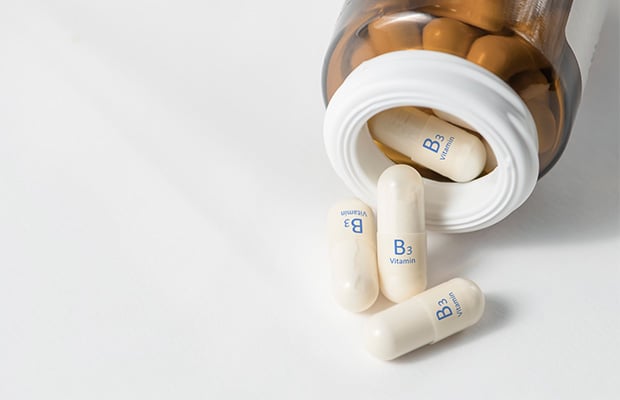
There’s some evidence to show niacin (also called vitamin B3 or nicotinic acid) can lower ‘bad’ cholesterol and raise ‘good’ high-density lipoprotein (HDL) cholesterol.
However, this effect is only seen in some people and only when it’s prescribed at a higher dose, so it’s not recommended as a supplement to reduce cholesterol or prevent heart disease.
Most people can get enough through their diet from meat, fish, nuts and seeds, as well as fortified cereals and bread.
Taking niacin as a supplement can also cause intense skin flushing.
More recently, a study of 1,162 people published in Nature Medicine in 2024 suggested that too much niacin may raise the risk of dying from heart disease or having a heart attack or stroke.
The researchers found people who had the highest levels of molecules produced when the body breaks down niacin in their blood had up to double the risk of having a serious heart event, including death, over the following three years compared to those with the lowest levels.
7. Policosanol

Policosanol is a compound extracted from sugar cane wax made in Cuba. Previous Cuban studies reported that it could lower cholesterol and improve various medical conditions.
However, research from other countries has found little reliable evidence that it works, and some studies show no effect at all.
What to read next...



